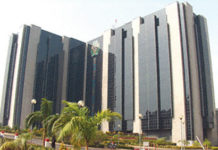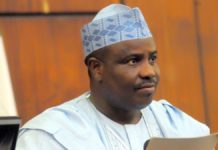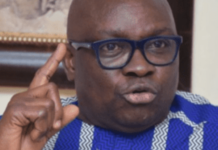Sterling Bank has set a five-year plan to grow into a Tier-1 lender, or at least be among the top six in the country.
“Our strategic plan is, in another five years, we will be among the top six in the Nigerian banking industry in terms of size,” Sterling Bank Managing Director/Chief Executive Officer, Yemi Adeola, disclosed when he fielded questions from financial journalists in Lagos.
He spoke at the bank’s extraordinary general meeting where the shareholders endorsed the request of the directors to raise new capital to boost operations and deliver higher returns on investment.
Shareholders approved a private placement of N20 billion through the issuance of 7.47 billion to Silverlake Investments, an investor in Mauritius.
They also approved plans to raise up to $200 million through one or a combination of equity, global depository receipts, public offering or rights issue.
Adeola told shareholders that the new money would enable the bank to explore more business opportunities.
He said migration to Tier-1 lender is a question of strategy, as size is not actually everything, and a bank must not be big to deliver good returns on investment.
“Our view today is that you must be efficient, deliver returns to shareholders. It doesn’t matter how big you are. You can be big for nothing.
“In terms of profitability, we will continue to be in the top five even from now in terms of return on equity.”
Sterling Bank is strong in key regulatory requirements and its performance indices are well ahead the industry threshold.
With N12 billion raised in rights issue and N20 billion in private placements, its capital stands at N80 billion and may rise above N90 billion at the end of year if it ploughs back profit.
Its capital adequacy ratio currently about 17 per cent will rise to about 19 per cent, far higher than the 10 per cent regulatory threshold for a Tier-2 bank.
Non-performing loans currently stand at 2.7 per cent, below the regulatory benchmark of 5 per cent; Capital Adequacy Ratio at 17 per cent.
Sterling Bank has not been rated high risk by the regulators. This implies that it is in a good position to give shareholders dividends.
In other words, it is not one of the banks likely to be affected by the new rules issued by the Central Bank of Nigeria (CBN) guiding dividend disbursement.
With these strong fundamentals going forward, perhaps, the bank hopes to migrate to the top six in terms of size and to Tier-1 in the next five years.
Adeola advised investors to take a long term view of investing in the equities market, saying a lot of work has been done in the system and banks are now fairly stable.
He attributed the bearish state of the capital market to fears about the 2015 election, and counselled that the market will normalise once again after the election.
On fears about shares reconstruction, he said the bank’s share capital will add up to about 28 billion at the conclusion of its capital raise, which is within industry average.
“There’s no reason for us to embark on shares reconstruction. It is not on the radar as far as we are concerned.”












